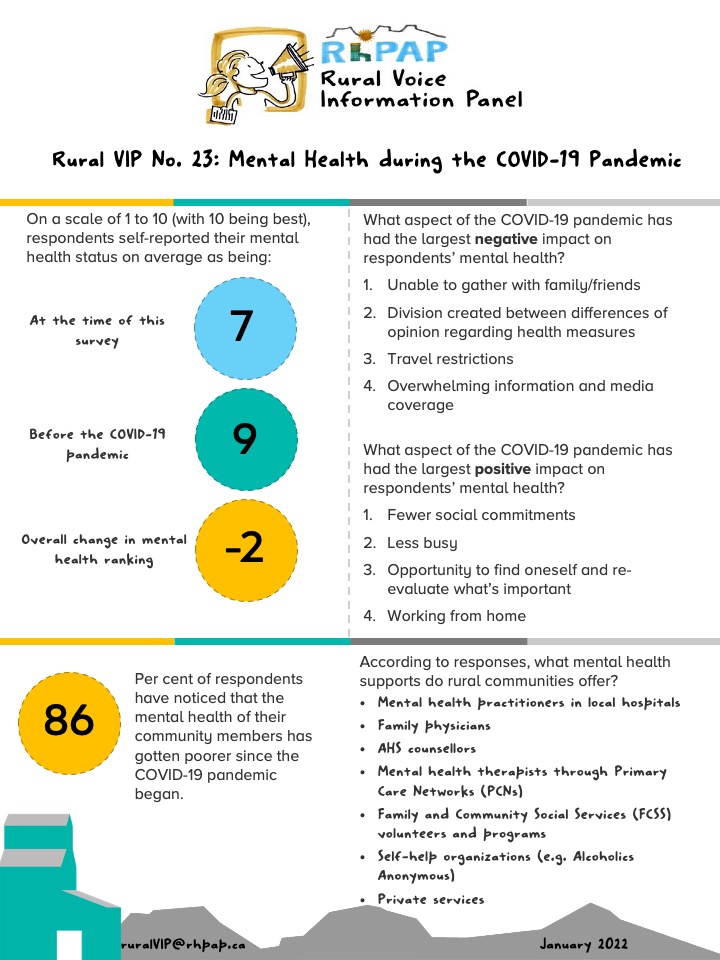Rural communities have unique mental health challenges. Research suggests that residents from smaller communities may experience higher mental health stigma than those from larger communities, which may cause them to be less likely to seek help.
Additionally, if a rural resident does seek help, they often find that their community lacks, or has insufficient, mental health services. Alternatively, rural residents may be unaware of what supports their community offers and how to access them. As a result, health-care crises, such as the COVID-19 pandemic, can be particularly devastating for rural communities and can lead to untreated stress, anxiety, and depression among rural residents.
For this month’s Rural VIP survey, we asked participants about how the ongoing COVID-19 pandemic has affected their mental health, and that of their neighbours’.
Key findings
Respondents were asked to self-report their mental health status on a 10-point scale (with 10 being best and 1 being worst) before the COVID-19 pandemic began (in early March 2020) and at the time of this survey. Respondents ranked their pre-COVID mental health status at an average of nine. In comparison, respondents ranked their current mental health status at an average of seven, a two-point drop from before the pandemic. Only five per cent of respondents indicated that their mental health has improved during this period.
According to respondents, the inability to gather with family and friends due to COVID-19 restrictions has had the largest negative impact on respondents’ mental health. Most respondents believe that the mental health of their community members has declined during the COVID-19 pandemic (86 per cent) and that consumption of alcohol and drugs has increased (63 per cent). However, the implications of the pandemic haven’t all been negative. Respondents report that they appreciate having fewer social commitments because of the COVID-19 pandemic. Some participants also reported having more time to focus on themselves and rediscover what is important to them.
To manage their mental health during the pandemic, respondents have indicated that they keep busy with hobbies, exercise, meditate, and connect virtually with friends and family.
While there are a range of mental health supports that respondents suggested were offered in rural communities—including mental health therapy through Primary Care Networks, Family and Community Social Services programs, Alberta Health Services programs, self-health organizations, and private mental health professionals, many respondents noted that there are insufficient resources in their community or that they are unaware of the resources that are available in their community.
Next steps
Based on the results from this survey, we can conclude that, unsurprisingly, the mental health of rural residents has declined during the COVID-19 pandemic. Offering more information about the different programs available and how to access them may prove beneficial for rural residents in managing mental health.
As we do each month, RhPAP will share these learnings and feedback with Alberta Health and the RhPAP Board of Directors, who represent the following organizations: Alberta Health Services, the Alberta Medical Association, the College of Physicians and Surgeons of Alberta, Rural Municipalities of Alberta, and the College and Association of Registered Nurses of Alberta. We will also share this information with other relevant health professional organizations for their consideration.
Click here for a full version of the Rural VIP Summary No. 23.

